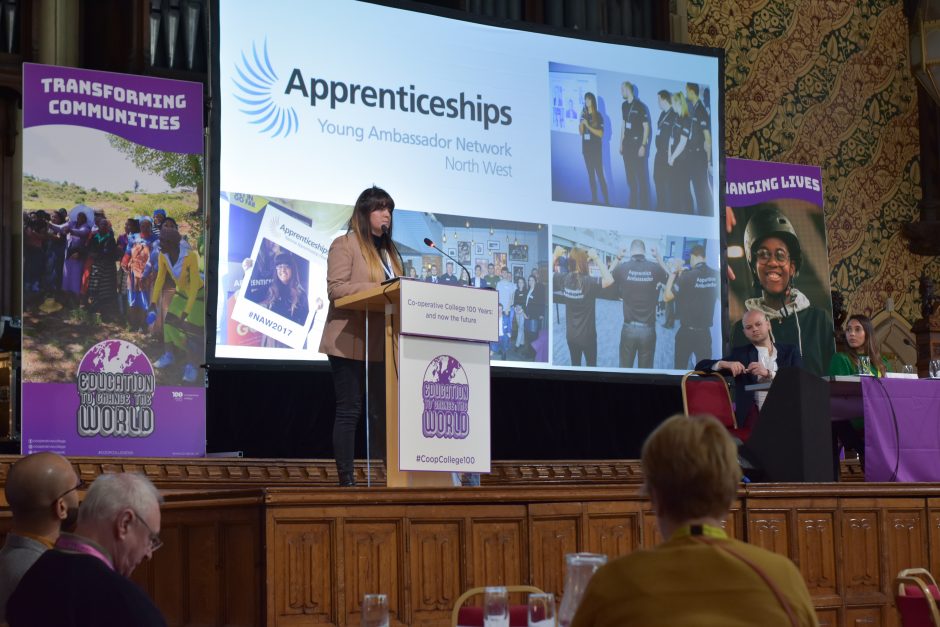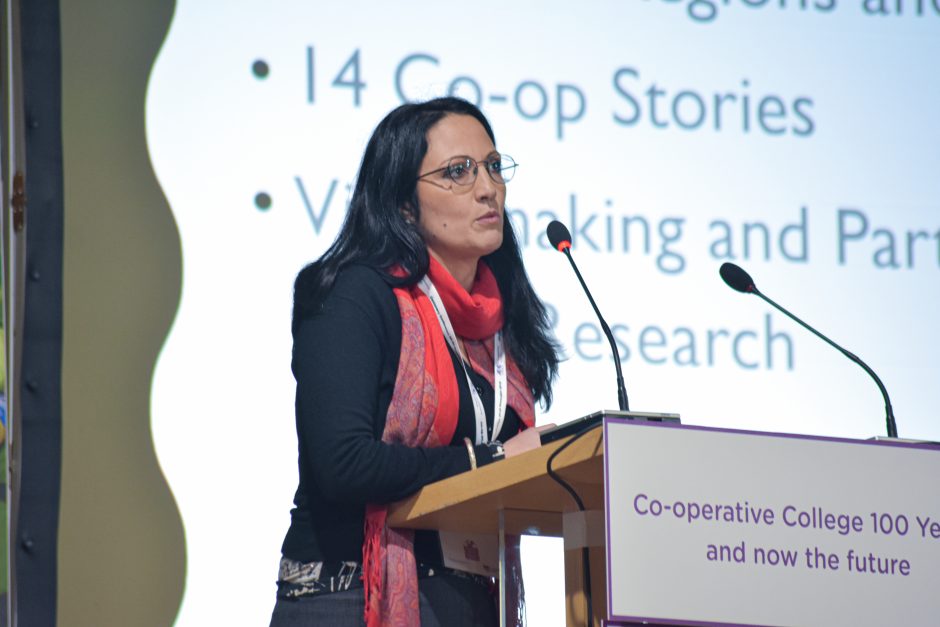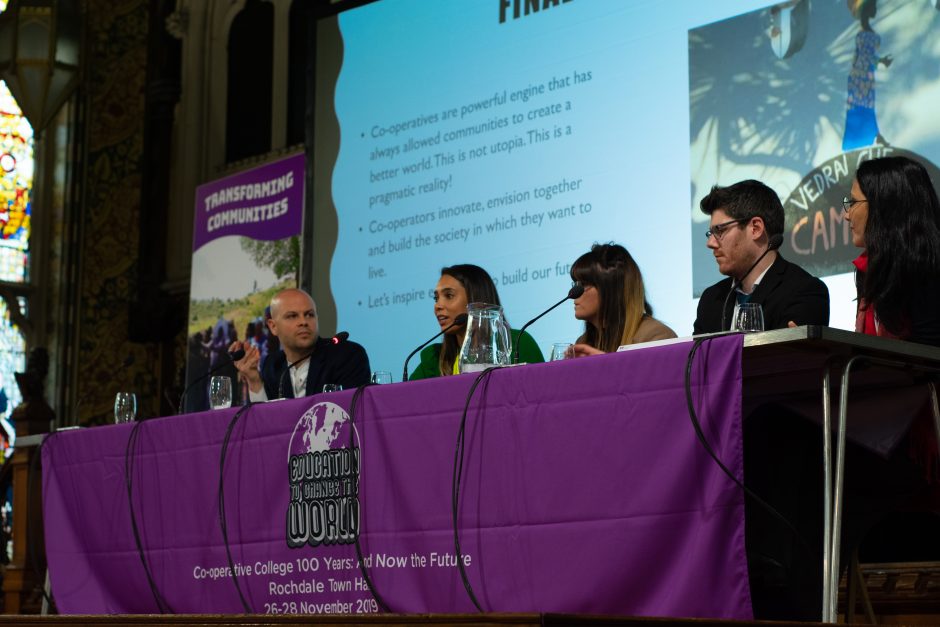Youth engagement – at a time when co-op values chime closely with the ideals of Generation Z – was a key issue at the Co-operative College’s Centenary conference, held in Rochdale last week.
Marc Noel, international development director for the ICA-EU Partnership Programme, said youth engagement is crucial to keeping the movement alive, and to making it stronger.
The College itself is engaged in a number of UK and international youth initiatives, and programme manager Gemma Obeng said young people want jobs rooted in their communities. “A lot of young people haven’t heard of co-ops but they care about the community and other people,” she said.
Co-ops can help the College’s efforts, she said, by mentoring a young person, speaking at its events, providing work experience or funding projects.
Co-op Foundation, the Co-op Group’s charity, is supporting College’s Youth Co-operative Action project with a £170,000 through the #iwill Fund, a UK-wide campaign to get six out of 10 young people involved in social action by 2020.
The foundation is also launching a youth advisory board to get a better idea of how to support young people, and has youth representation on its campaign steering group. The foundation’s campaign to tackle loneliness was co-created by a group of nine young people who had felt lonely in the past.
The Lonely Not Alone campaign encourages everyone to wear yellow socks – suggested by young people because it is a ‘joyful colour’ – to show they care about youth loneliness, and post a picture of themselves on Twitter at @lonelynotalone using #LonelyNotAlone.
Lois McClure, a colleague member on the Co-op Group’s Members’ Council, told delegates how she joined the Group’s apprenticeship programme in 2012.

“I knew back then and I still do now that co-ops should and still can change the lives of young people,” she said. Working at the Group meant she could volunteer for different causes and get involved in creating apprenticeships.
Related: How co-ops can help build peace
She encouraged co-ops to try to reach wider audiences by having a presence at festivals and tailoring their language to enable young people to understand it. “Young people are starting to want radical change. But they just don’t know about it,” she said.
Sara Vicari from Aroundtheworld.coop – a film making project looking at co-ops around the world – said she he had come across a number of projects that work with young people. They include Creando Conciencia in Argentina, a co-op set up by young people who are transforming waste into furniture, which welcomes educational visits from schools and students.

Some delegates suggested using platforms to encourage more young people into the movement, but Lois McClure said it was important for co-ops to go out to where young people are, to introduce them to the model.
Gemma Obeng added: “Young people have to go into co-ops to be able to see they are transforming communities – we can’t tell them. When they learn about co-ops they are interested in them.”
In his keynote speech, Woodcraft Folk chair Pip Sayers said experienced co-operators have a crucial role to play in youth engagement. Mr Sayers, who joined the co-op youth organisation at the age of six, said it had enabled him to attend summer camps and run projects with other young people. When he was eight, he joined other Woodcraft Folk members to raise funds for those affected by the Boxing Day tsunami of 2004. By the age of 16 he was already running events with little support from adults and now, at 23, he is the youngest chair of a board of trustees in the country.

“Young people of all ages can be empowered co-operatively,” he said. “You can empower young people, you just have to believe they can do it. ”
In his keynote speech Sebastian Chaillou, president of the International Co-operative Alliance’s Youth Network, encouraged delegates to view co-operatives as a social movement. He gave the example of Solidarité Etudiante, a a multi-stakeholder co-op network of student cafés run and managed by students themselves, where he served as president. The co-op was founded in 2012 after years of student strikes in protest at government spending cuts.
“We heard the mayor of Greater Manchester Andy Burnham say that the next century will be one of cities,” he said. “Maybe, but for sure it is one of companies. So we need both companies and cities being ruled by citizens. We need to make our co-operative movement a social movement.”
Mr Chaillou said co-operators should avoid complacency, be more inclusive and continue to improve democratic processes to align themselves with what people want.
Overall, he thinks the co-operative movement is making progress. He is the first president of the Youth Network to be elected rather than appointed.
“Please open the doors and windows to let people meet the co-operative movement because it has to be the social movement of the 21st century,” he said.